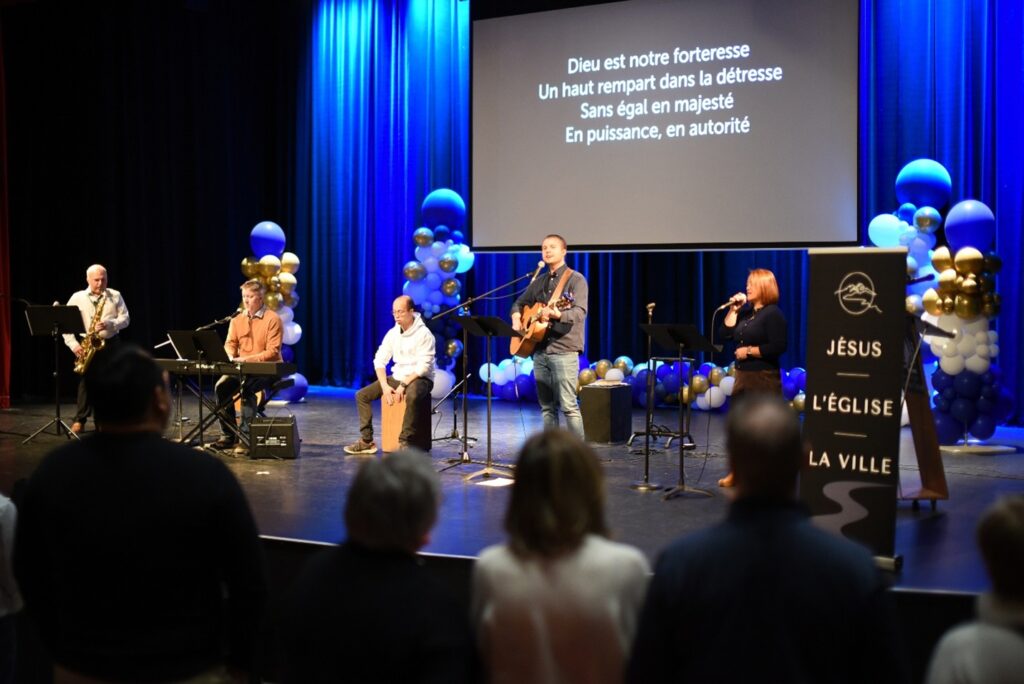A peaceful gathering becomes a legal flashpoint
Since 2024, the Church of Two Shores (Église des Deux-Rives) in Saguenay, Quebec, has peacefully rented a modest basement space from the City for its weekly Sunday services. According to Pastor Zach Laustsen, who has attended the church with his wife and daughters since 2024, the congregation was fully transparent about its identity and purpose when signing the lease.
“When we signed the lease early on, we were unambiguous about who we were and what we were gathering for,” says Mr. Laustsen.
“To have our lease terminated with no reasonable notice was unexpected, hurtful, and frustrating. It caused a lot of last-minute scrambling for myself and the other pastor to find an alternative meeting space suitable for a group our size.”
The City invokes the Secularism Act
In March 2025, city officials informed the church that its lease would be terminated unless it ceased all religious activities. The City cited Quebec’s Loi sur la Laïcité de l’État (Secularism Act) as justification for its decision, claiming that religious services should not be held in publicly owned facilities.
However, the Loi sur la Laïcité does not prohibit religious groups from renting or using municipal spaces. The Act affirms the neutrality of the State while also affirming freedom of religion. Its notwithstanding clause applies only to specific provisions, such as religious symbols worn by persons in positions of authority, and does not cancel all Charter-protected freedoms.
The Justice Centre is providing lawyers to assist the Church of Two Shores in challenging the City’s actions. According to constitutional lawyer Olivier Séguin, this case raises profound questions about the limits of government power.
“This case is about how far a government can go when it invokes the notwithstanding clause,” says Mr. Séguin. “Overriding constitutional protection for religious freedom using the notwithstanding clause is a serious matter. It is a serious error for the City of Saguenay to attempt to expand by implication the reach of constitutional override in the Loi sur la Laïcité de l’État beyond its text.”
A precedent-setting case for religious freedom
The outcome of this case could carry significant implications for religious freedom in Quebec. If the court accepts the City’s interpretation, it may open the door to broader government exclusion of religious activity from all public spaces—not just those explicitly addressed in the law.
A timetable for the case at the Superior Court of Chicoutimi has not yet been set.

